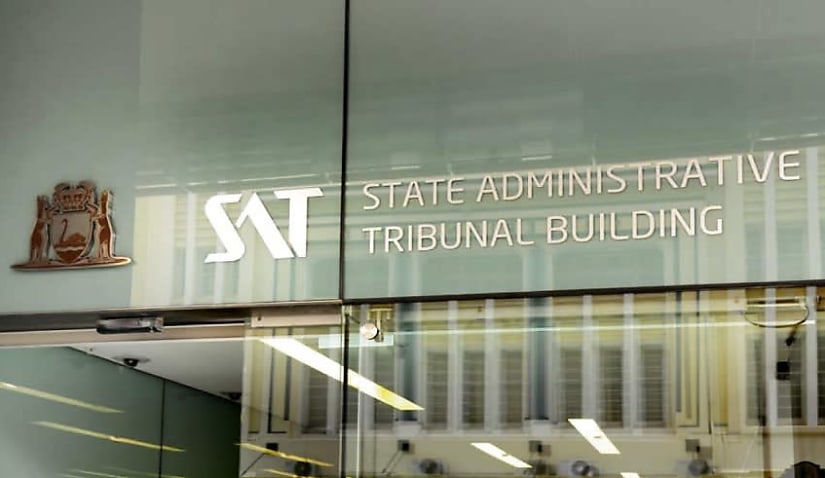Powered by MOMENTUM MEDIA
A recommendation was made to strike the name of a West Australian lawyer from the roll for a number of misconduct findings, including for sending “discourteous, threatening” letters.

Having found Michael Joseph Lourey engaged in “serious” breaches of his obligations as a practitioner, the State Administrative Tribunal of Western Australia (WASAT) sent a report to the Supreme Court’s full bench with a recommendation that his name be removed from the local roll.
The misconduct in question concerns a failure to comply with summons sent by an LSCC investigator, a failure to comply with an undertaking, and several “discourteous” and threatening letters.
“In our view, such conduct amounts to a very serious, deliberate breach of his fundamental obligations as a legal practitioner, which evidences a lack of honesty, integrity, and trustworthiness on his part and, accordingly, demonstrates that he is not a fit and proper person to engage in legal practice,” WASAT found in its penalty judgment.
The disciplinary matter has a long procedural history, including a successful appeal and a finding that WASAT had, in the first instance, denied Lourey procedural fairness on four grounds.
After being remitted back to WASAT from the Court of Appeal, the tribunal said it was satisfied that each ground was made out and Lourey failed to comply with the LSCC investigator’s summons.
Lourey denied “each and every allegation” and claimed he had attempted to comply, including by seeking extensions of time, but there were “various practical difficulties with doing so”.
He also claimed there was a reasonable excuse for not complying with the summons because, in his view, the material the investigator had requested was “irrelevant to the investigation”.
However, Lourey accepted he did not seek to challenge the validity of the summons by way of a judicial review and also accepted none of the four summons were “relevant in the way that they went beyond the scope of the proper investigation of the complaint against him”.
WASAT said his conduct can be properly characterised “as a deliberate refusal to comply with a lawful direction by the professional regulator in order to frustrate or hinder its investigation”.
“In our view, there can be no doubt that the respondent’s behaviour is such that it would be considered dishonourable and disgraceful by practitioners of good repute and competence,” WASAT found.
Not subject to the appeal was a finding that Lourey engaged in professional misconduct by failing to adhere to an undertaking to provide submissions within a deadline he set.
Lourey also engaged in professional misconduct by sending threatening letters to other legal practitioners and unsatisfactory professional conduct for the contents of a letter to a doctor.
“The practitioner’s discourteous, threatening and intimidating correspondence covered a lengthy period and included dealings with several practitioners and others involved in litigation.
“In that regard … the correspondence in question went well beyond mere discourtesy and was found to have included the making of baseless threats and attempts to threaten and intimidate to obtain unfair advantage,” WASAT wrote in its judgment.
In one letter to another lawyer, Lourey suggested a complaint would be made if they did not respond in a satisfactory manner.
WASAT found this to be “threatening and … an attempt to advance [the practitioner’s client’s interests] by unfair means”.
In another, Lourey claimed he would pursue costs against the recipient, which was found to be “intimidating and threatening in circumstances where there were no grounds to make those threats”.
The doctor who received a letter had been subpoenaed to give evidence but sent an invoice for a cancellation fee when the hearing was vacated. Lourey disputed this invoice.
In the letter subject to the complaint, Lourey claimed the doctor made a complaint with the intention of pressuring payment of the invoice.
In addition to using discourteous language, the tribunal found this letter suggested the practitioner was “addressing the doctor on behalf of the profession as a whole”, which it said had the potential of “bringing the legal profession into disrepute”.
The tribunal noted discourteous conduct is not typically sufficient to warrant a finding of professional misconduct and will less frequently lead to a “finding that the practitioner should be struck off”.
“Nonetheless, courtesy’s important in the legal system and in the relationship between the legal profession, the court system, and general public should not be understated.
“Fearless advocacy on behalf of a client is not an excuse for discourtesy,” WASAT found.
In its penalty reasons, the tribunal said evidence Lourey lacked insight and remorse into his misconduct “is considerable and overwhelms the limited evidence to the contrary”.
“As the applicant submits, up to and including at the hearing before us, the practitioner made almost no admissions and positively denied that he had engaged in any misconduct,” the judgment read.
“Despite that, he ran no positive case and failed to give evidence.”

Naomi Neilson is a senior journalist with a focus on court reporting for Lawyers Weekly.
You can email Naomi at: